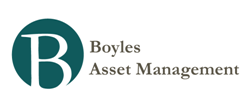Money and Finance
- Notes From A Meeting With Warren Buffett On November 15, 2013 - By Dr. David Kass
A big thanks to Peter for passing this along. My Alma Mater, Coastal Carolina University, also happened to be one of the 8 universities that attended the meeting. (11) You were the first person to use the term “moats” as competitive advantage. Morningstar...
- How The Robots Lost: High-frequency Trading's Rise And Fall
Thanks to Remmelt for passing this along. For the first time since its inception, high-frequency trading, the bogey machine of the markets, is in retreat. According to estimates from Rosenblatt Securities, as much as two-thirds of all stock trades in...
- Ed Thorp, Jack Schwager, And The Kelly Criterion
Excerpt from Jack Schwager’s interview with Ed Thorp in the book Hedge Fund Market Wizards: The Kelly criterion is the fraction of capital to wager to maximize compounded growth of capital. Even when there is an edge, beyond some threshold, larger bets...
- Help Us, Nate Silver!
Thanks to Mike for passing this along. Statistics cannot be any smarter than the people who use them. And in some cases, they can make smart people do dumb things. One of the most irresponsible uses of statistics in recent memory involved the mechanism...
- Charlemagne Capital Limited: A Way To Play Emerging Markets?
In the latest 7-Year Asset Class Return Forecast that gets produced every month by GMO, the highest forecasted asset class over the next 7 years is emerging market stocks (6.8% per year). One could try and capture some of this tailwind by buying indices...
Money and Finance
The Knight Fiasco: How Did It Lose $440 Million? - By Bob Pisani
How did Knight lose $440 million?
Well, that didn't take long. Knight Capital announced a pre-tax loss of approximately $440 million on its "technology issue" yesterday, and also said they had traded out of its entire erroneous trade position.
Wow: $440 million? How on earth did it lose that much? It's easy to see. I noted many times yesterday that the volume in the first half hour of trading on the New York Stock Exchange floor was titantic: shortly after 10 a.m. ET, it was about 300 million shares, well more than twice normal volume at that time.
This would indicate that the trading program that came out of Knight resulted in millions of duplicate trades. And it was not going to get much relief in the form of busted (erroneous) trades. The NYSE last night busted trading in only a half-dozen stocks and declared that "no additional symbols will be considered for review."
The NYSE was not being mean-spirited: The definition of what constitutes an "erroneous" trade is very carefully defined, and the NYSE determined that based on that definition only a half-dozen stocks fell into that category.
Once that happened, Knight was faced with tens of millions (at least) of trades that were not clearly "erroneous," but which it is likely liable to cover. At that point, it was just a matter of doing the math.
That's why it was able to come up with a number so quickly.
- Notes From A Meeting With Warren Buffett On November 15, 2013 - By Dr. David Kass
A big thanks to Peter for passing this along. My Alma Mater, Coastal Carolina University, also happened to be one of the 8 universities that attended the meeting. (11) You were the first person to use the term “moats” as competitive advantage. Morningstar...
- How The Robots Lost: High-frequency Trading's Rise And Fall
Thanks to Remmelt for passing this along. For the first time since its inception, high-frequency trading, the bogey machine of the markets, is in retreat. According to estimates from Rosenblatt Securities, as much as two-thirds of all stock trades in...
- Ed Thorp, Jack Schwager, And The Kelly Criterion
Excerpt from Jack Schwager’s interview with Ed Thorp in the book Hedge Fund Market Wizards: The Kelly criterion is the fraction of capital to wager to maximize compounded growth of capital. Even when there is an edge, beyond some threshold, larger bets...
- Help Us, Nate Silver!
Thanks to Mike for passing this along. Statistics cannot be any smarter than the people who use them. And in some cases, they can make smart people do dumb things. One of the most irresponsible uses of statistics in recent memory involved the mechanism...
- Charlemagne Capital Limited: A Way To Play Emerging Markets?
In the latest 7-Year Asset Class Return Forecast that gets produced every month by GMO, the highest forecasted asset class over the next 7 years is emerging market stocks (6.8% per year). One could try and capture some of this tailwind by buying indices...

